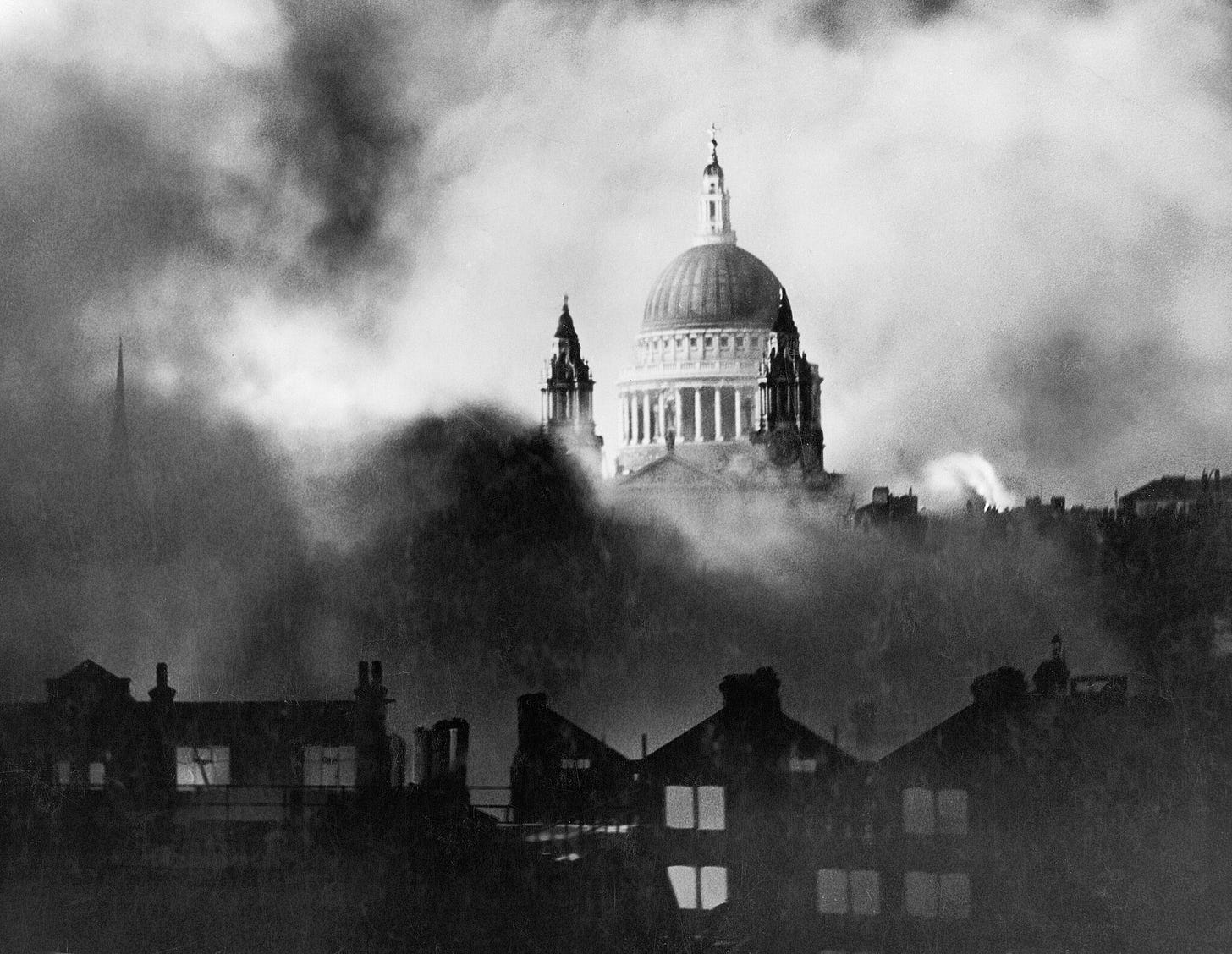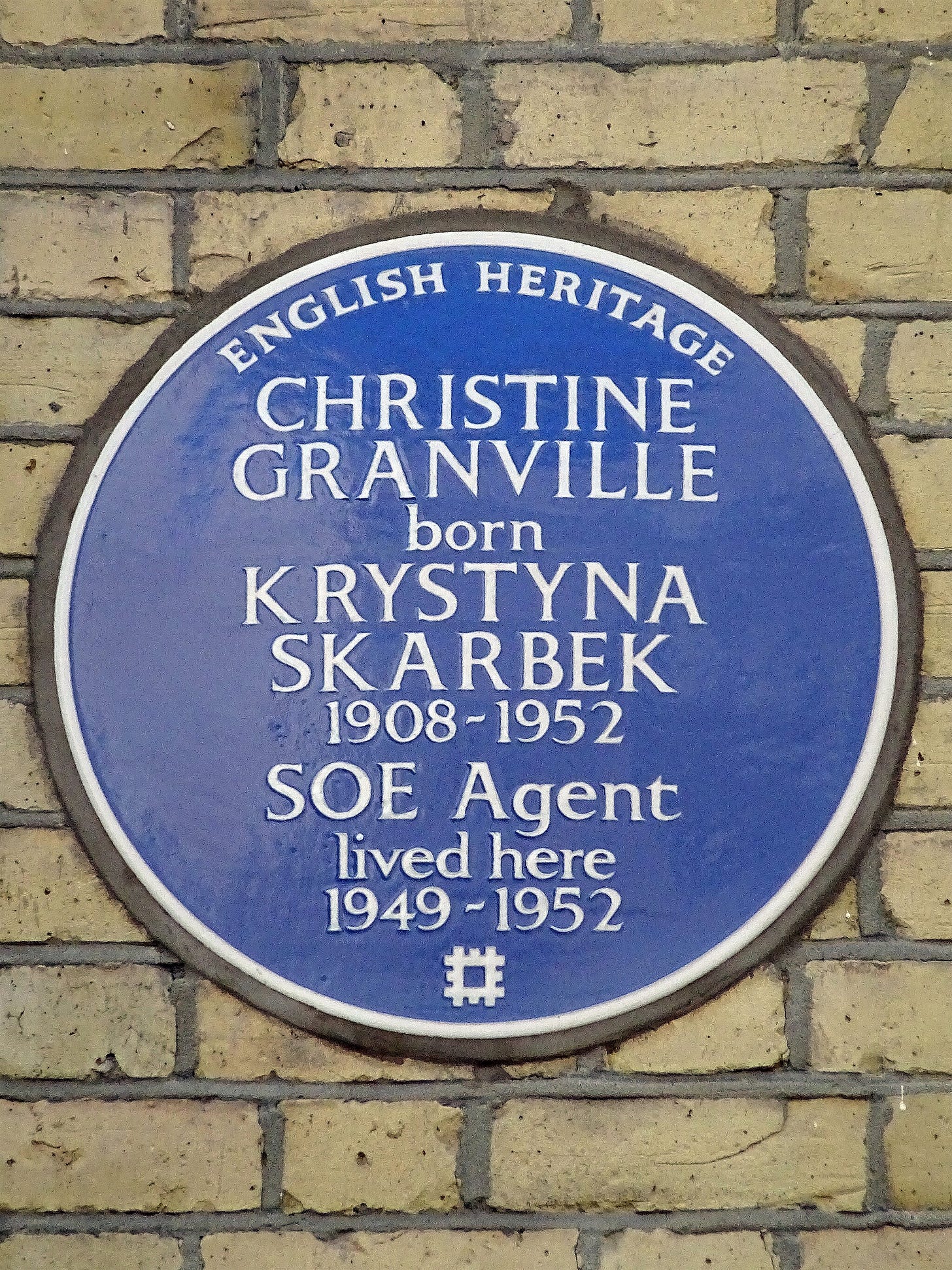Hi and welcome to your weekend newsletter 👋
With International Women’s Day coming up next week on 8 March, I’ve picked out a handful of London women’s stories of service during the second world war.

It can be easy to look at the blue plaques scattering London or watch any of a thousand war films, and think, okay, the stories of the battles, the sacrifices, the victories, the losses and the courage that determined the direction of the second world war are the stories of men.
And yet women were parachuting into occupied France and smuggling arms across the Polish border on skis and codebreaking messages that changed British military strategy; women were serving on the frontline of the Blitz as doctors and firefighters, and piloting planes across the UK through embattled skies; women were inventing Spitfire modifications that fundamentally altered the balance of power between British and German pilots in the Battle of Britain.
So here, a handful of war service stories, to stand as examples of countless more that get less airtime than they deserve.
(Content warning: this feature - and many of the articles and interviews linked to - discusses wartime service and deals with death, injury and trauma.)
Christine Granville/Krystyna Skarbek

Britain’s longest-serving female secret agent only became Christine Granville in 1941, after a run-in with the Gestapo forced her to assume a new identity.
She was born Maria Krystyna Janina Skarbek in 1908, into an aristocratic Polish-Jewish family. When Germany invaded Poland, she and her then-husband abandoned their travels through southern Africa and moved to England to help defend their homeland from Nazi rule. Unlike many agents serving then, approached and recruited by the intelligence services for their background or skillsets, Skarbek did the running: she sought out an MI6 representative and convinced them to bring her into the fold. She then crafted an extraordinary mission proposal: she’d travel to neutral Hungary, secretly cross the mountains and infiltrate the border of occupied Poland on skis, transport in weapons, arms and money to supply the resistance movement there, and return with intelligence. Which she did. Multiple times.
During the course of her espionage career she was arrested by the Gestapo and tricked her way out of imprisonment, and adopted the identity Christine Granville to evade their attention on future missions. During other missions she also - among countless action-hero moments - parachuted into occupied France, crossed the Alps on foot with a backpack full of hand grenades, arranged the destruction of a Nazi-held fortress in a key strategic position, and rescued two British agents being held by the Gestapo.
Her loyalty wasn't repaid well by the British government, who left her post-war with a month's salary and, without a British passport, 'virtually stateless' (written about by Xan Fielding, one of the agents she saved from the Gestapo, in Hide And Seek). Her war record was often disbelieved, and at least once she was accused of fraudulent claims when she wore the medals she’d received. Eventually granted British citizenship, Granville struggled to find steady employment and settled at the Shellbourne Hotel, which provided cheap accommodation for Polish emigres. She lived there from 1949 until 1952 when, aged just 44, she was brutally murdered by a former lover who had been stalking her.
There’s now a blue plaque commemorating her bravery in Kensington, on the site where the Shellbourne once stood.




